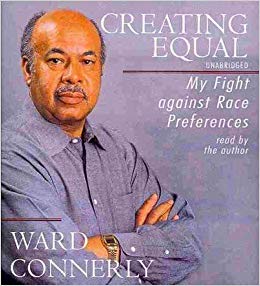
Ward Connerly (Amazon)
Voting ‘NO’ on Prop 16 Means No Discrimination or Affirmative Action
Rally at State Capitol: ‘Don’t Legalize Discrimination’ protesters and speakers say
By Katy Grimes, August 10, 2020 12:29 pm
“Four score and seven years ago our fathers brought forth on this continent, a new nation, conceived in Liberty, and dedicated to the proposition that all men are created equal.”
That is the opening statement of President Abraham Lincoln’s Gettysburg Address, November 19, 1863.
“We are a nation conceived in liberty, and dedicated to the proposition that all men are created equal,” Ward Connerly told a group of “No on Prop. 16” advocates at the State Capitol Sunday.
The California Civil Rights Initiative, known as Proposition 209, protects us from discrimination. Prop. 209, passed by voters 55% to 45% in 1996, said that the state cannot discriminate against or grant preferential treatment on the basis of race, sex, color, ethnicity, or national origin in the operation of public employment, public education, and public contracting.
Proposition 16, on the November ballot, would repeal Prop. 209 and divide Californians by making discrimination legal in California, Connerly says.
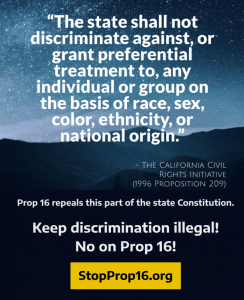
Education scholar Lance Izumi, with the Pacific Research Institute, worked with Ward Connerly in 1996 for passage of Prop. 209, and spoke at Sunday’s rally.
“Back in 1996, I worked with Ward and others to explain the racially discriminatory practices that had been occurring in California for years, and then explaining the principles underlying Prop. 209,” Izumi said.
Izumi offered three important points:
- First, the moral case for Prop. 209;
- second, the impact of racially discriminatory practices in California prior to the passage of Prop. 209; and
- third, how the current attempt to repeal Prop. 209 ignores the real cause for the difficulty underrepresented minorities face in accessing our top public universities.
“It is important to point out that Prop. 209 is based on the exact language of the 1964 U.S. Civil Right Act,” Izumi explained. This is the bulk of his speech:
Proposition 209 says, “The state shall not discriminate against, or grant preferential treatment to, any individual or group on the basis of race, sex, color, ethnicity, or national origin in the operation of public employment, public education, or public contracting.”
This similarity to the U.S. Civil Rights Act is extremely important because of the moral case made by President John F. Kennedy and others for passage of this law.
In his landmark message on the need for the Civil Rights Act, President Kennedy said: “We are confronted primarily with a moral issue. . . . The heart of the question is whether all Americans are to be afforded equal rights and equal opportunities, whether we are going to treat our fellow Americans as we want to be treated.”
Further, he said that all Americans “have a right to expect that the law will be fair, [and] that the Constitution will be color blind.”
The United States Congress passed the U.S. Civil Rights Act in response to the moral case laid out by President Kennedy.
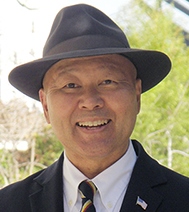
Similarly, the people of California passed Proposition 209 by a near-landslide majority because of the moral case laid out by Ward Connerly and others, which was based on actual discrimination experienced by Californians, especially Asian Americans, due to government-sponsored racial preference programs.
For example, prior to the University of California eliminating race preferences in its admissions process in 1995, there was widespread racial discrimination in admissions throughout the UC system.
My institute, the Pacific Research Institute did a study and found that prior to the UC’s elimination of race preferences, Japanese Americans were 13 times LESS likely to be accepted to UC Davis medical school than members of groups benefiting from race preferences.
Korean Americans were 14 times LESS likely to be accepted than those who benefited from race preferences.
My good friend, the late State Assemblyman Nao Takasugi, who for many years was the only Asian American in the Legislature, testified to the UC Regents: “Let us be clear, what we are discussing today with UC’s special preferential admissions policy is nothing more or nothing less than state-mandated discrimination based on race, the same discrimination that locked me and my family away in the prison of injustice in [the Japanese-American internment camp at] Gila River, Arizona.”
Proposition 209 has guaranteed that the injustice that Assemblyman Takasugi pointed out would never happen again in California.
Finally, let me say that the effort to repeal Prop. 209 totally fails to recognize that the true culprit for the difficulties of underrepresented minorities gaining entrance into the University of California system lies not with Prop. 209’s anti-discrimination language, but with the failure of the California’s public K-12 system to adequately prepare these students for higher education.
The UC Academic Senate has found that for underrepresented minorities, the most significant factor preventing UC eligibility was not Prop. 209, but the “failure to complete all required A-G [college preparatory] courses with a C or better.”
Even UC President Janet Napolitano herself admits that, quote, “the biggest contributor to underrepresentation at UC is that students do not fulfill A-G subject requirements for admissions,” unquote.
So, if legislators, policymakers, and educators truly want to improve the chances for success for underrepresented minority children, then they should avoid divisive identity politics and get to the hard work of offering better education alternatives for all children in California.
Let me end by again quoting President Kennedy’s message on the U.S. Civil Rights Act. The president said that America was “founded on the principle that all men are created equal, and that the rights of every man are diminished when the rights of one man are threatened.”
Repealing Proposition 209 would therefore threaten the equal rights of all people in California. And that would be wrong.
A few weeks ago, the people in this building failed to listen to you. But let me tell you, they are going to hear all of you in November!”
President Lincoln ended his address:
“It is for us the living, rather, to be dedicated here to the unfinished work which they who fought here have thus far so nobly advanced. It is rather for us to be here dedicated to the great task remaining before us that from these honored dead we take increased devotion to that cause for which they here gave the last full measure of devotion – that we here highly resolve that these dead shall not have died in vain that this nation, under God, shall have a new birth of freedom, and that government of the people, by the people, for the people, shall not perish from the earth.”
- While Newsom Fiddles, California’s Gas & Oil Crisis Ramps Up with Tensions Between the US and Iran - February 22, 2026
- Trump Responds, Issues Global 10% Tariff on all Countries - February 21, 2026
- What is Trump’s Plan B After Supreme Court Strikes Down Tariffs? - February 20, 2026


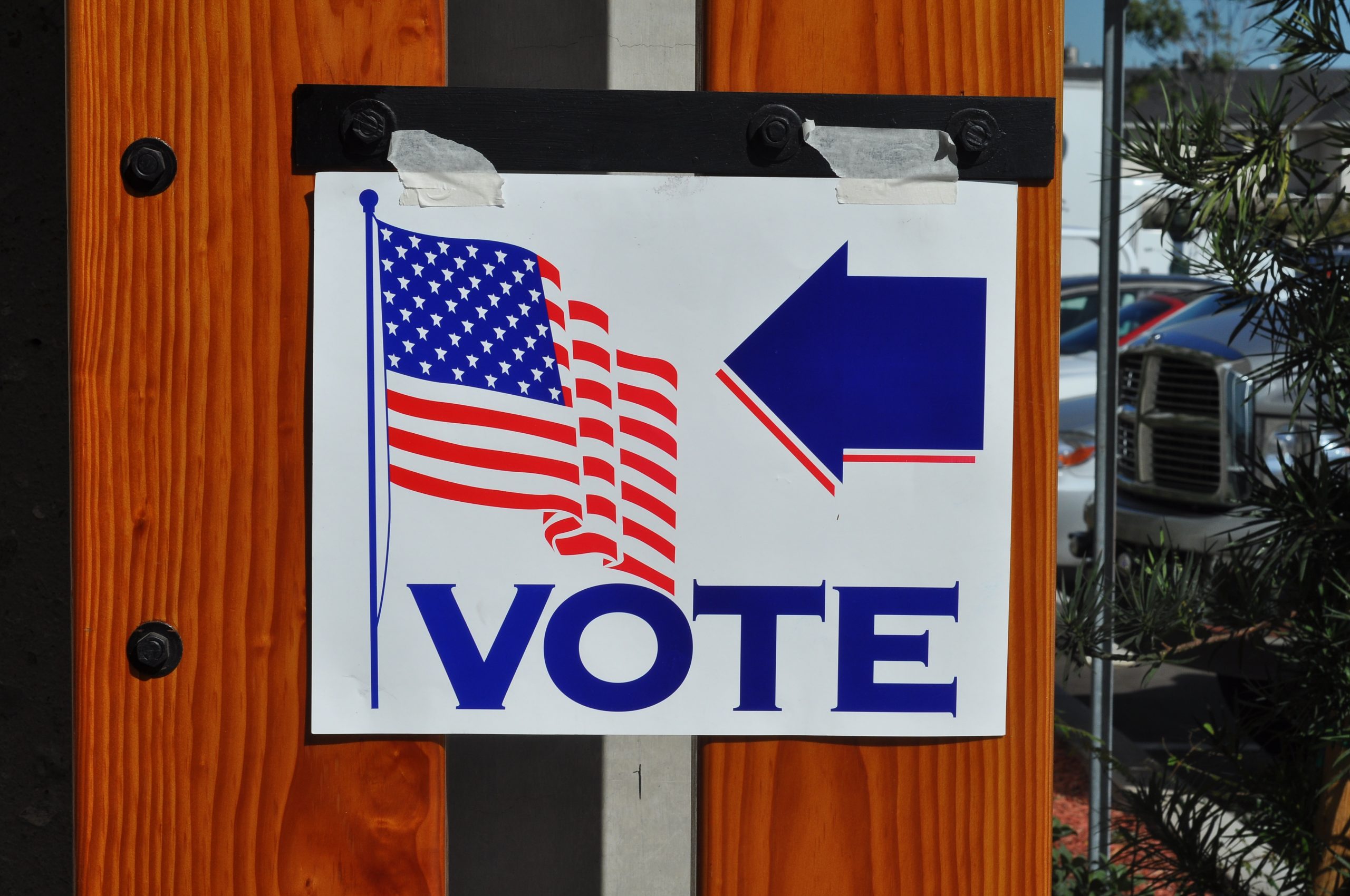
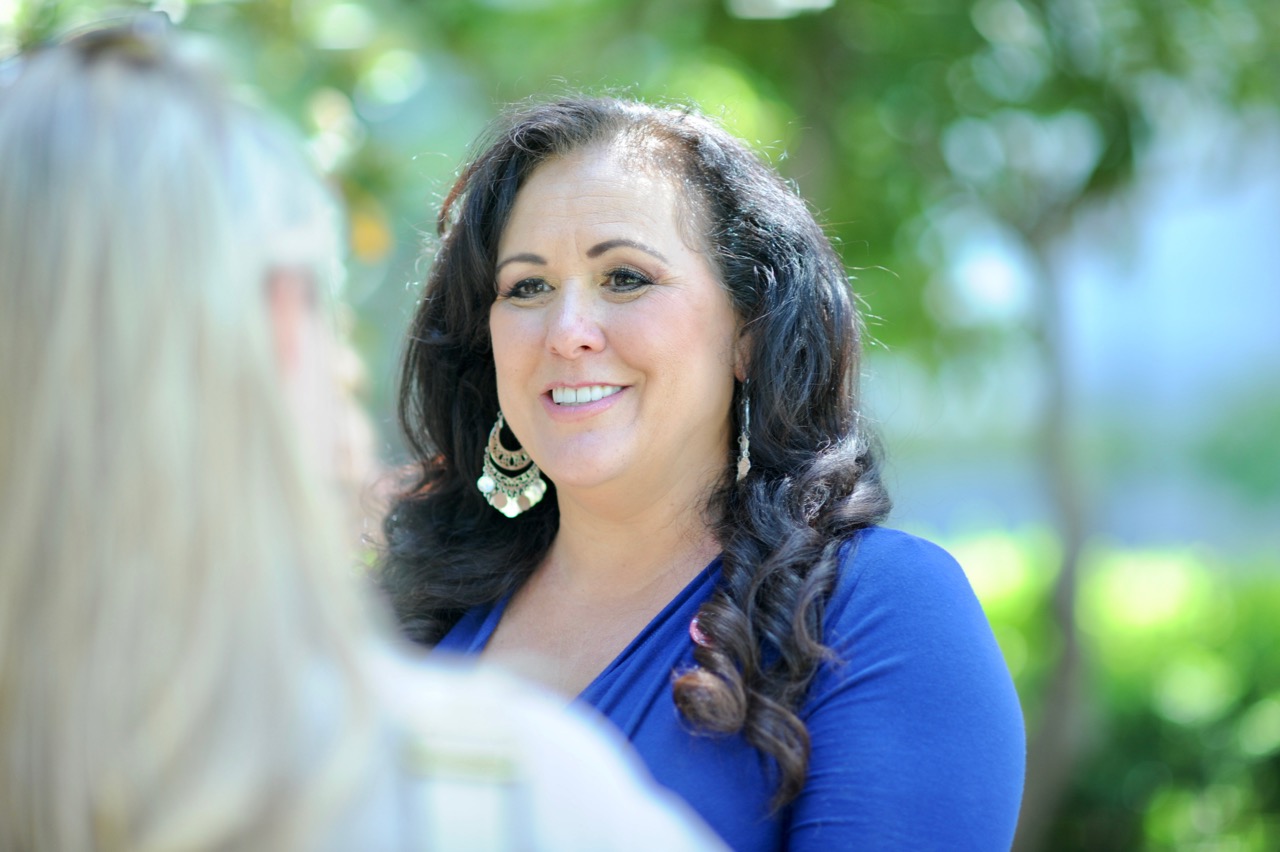
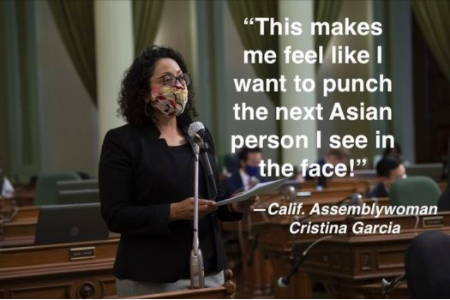
Katy, outstanding article! Thank you for reminding us all about the true intent of Proposition 209. I hope the concept stands the test of time as stated through out our history. Vote No on Prop16. Liberty and equality for all.
Racial discrimination against any race is immoral and wrong. Justifying such action on the grounds of increasing diversity does not erase the immoral premise. Asian cultures highly value education and the sacrifices family and students make are significant. To punish a group for their effort and performance is a crime. If quotas or affirmative action are reinstated, then do it across the board for all activities, including sports and arts. If the student body is designed to reflect the at large population, then do the same for athletic teams, orchestras, dance groups, drama groups. We must also erase any gender discrimination, so all student bodies would be coeducations with 50% male 50% female as well as basketball teams, football teams, orchestras, swim teams. drama groups, etc. Fair is fair for every group and school.
There is plenty of racial discrimination in California but it is against white and asian students. Students with Hispanic names were chosen even though their parents came from Spain generations ago. One that I know of is blond and blue eyed and did not have a great grade record but was taken ahead at Davis before others with better qualifications solely because of her Hispanic surname. The U of Ca. system announced that 70% of the incoming class was Hispanic. We are shutting out some of our most promising student for racial justice. This is racial injustice! This is discrimination in its worst form against students of middle income families who are hard working citizens paying taxes and supporting the educational system.
You are 100% correct on this. It’s a breath of fresh air what you have said here.
It does not help when so much written about affirmative action and the proposition’s analysis is not clearly stating what it’s truly about. It tries to shield what it will really do and that is to actually openly practice discrimination against American citizens who actually deserve the university spot or employment because of their merit and achievement.
They are literally attempting to IMPLEMENT race based discrimination, which was outlawed by the will of the people by Prop 209. That’s where we’ve come now.
Proposition 16 is not about Affirmative Action. It is an attempt to scrap provision of California Constitution that guarantees equal rights regardless of race, gender and so on. If you are racist – vote YES for Prop 16.
Boris Axelrod
Applied Materials
Member of Technical Staff